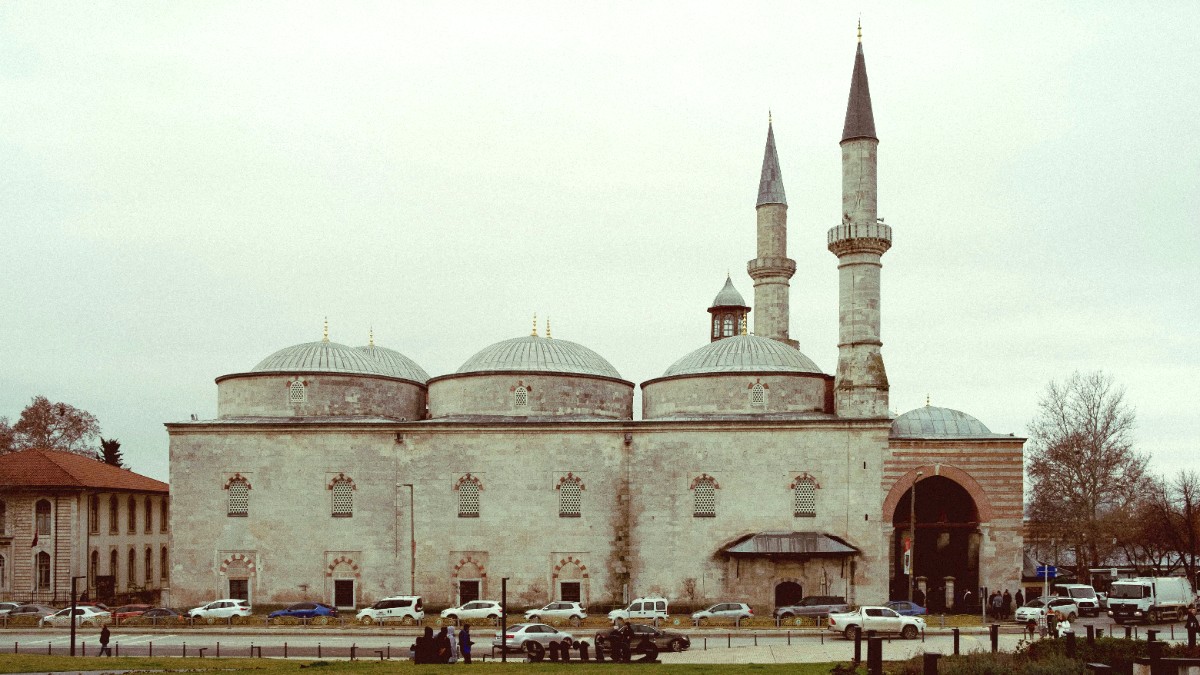
Turkey
Gala Lake National Park, a protected wetland and bird sanctuary southeast of Edirne, serves regional conservation. Follow park rules and avoid disturbing wildlife.
Minimize your waste. Carry a reusable water bottle and shopping bag. Recycling infrastructure in Edirne is less developed; dispose of waste properly in designated bins.
Turkey experiences periods of water stress. Be mindful of your water usage: take shorter showers, turn off taps, and report any leaks in your accommodation.
Consider your ecological footprint during travel.
The Meric and Tunca rivers are important natural features. Efforts are underway to maintain the cleanliness and health of these river ecosystems.
Consider exploring carbon offset options for your flights to and from Turkey. Many airlines or third-party organizations offer programs where you can invest in projects that reduce greenhouse gas emissions.
When selecting your accommodation, seek out properties that demonstrate sustainability efforts. This may include energy-efficient lighting, water-saving measures, local recycling initiatives, and sourcing local produce for their restaurants.
While specific eco-certified tour operators might be less common for Edirne-specific tours, choosing operators who prioritize small group travel and use local guides aligns with low-impact tourism. Explore ethical tours with G Adventures.
Minimize your use of plastic bags. Carry a reusable shopping bag for purchases. This action helps considerably.
If possible, carry out any non-biodegradable waste to larger centers that may have better recycling facilities.
Your mindful travel choices contribute to the long-term well-being of Edirne's environment and communities.
Engage with Edirne's rich cultural heritage respectfully.
The municipal government and various local organizations strive to preserve Edirne's rich Ottoman heritage, including its mosques, bridges, and traditional houses. Your respectful engagement with these sites supports their ongoing preservation.
Dress modestly, especially when visiting religious sites or traditional neighborhoods. Learning basic Turkish phrases like "Merhaba" (Hello) and "Teşekkür ederim" (Thank you) greatly assists in showing respect and building rapport with locals.
Respect individual privacy. Do not photograph people without their consent. Be mindful of security and military installations; photography of these is prohibited. Inside mosques, avoid photographing people praying and turn off your flash.
A simple gesture (pointing to your camera and asking "Fotoğraf?") often suffices.
Areas with security presence are usually off-limits for photography.
Exercise discretion and minimal intrusion in religious settings.
Cultural sensitivity helps create meaningful interactions and supports local traditions.
Your travel choices directly influence the local economy.
While formal community-based tourism projects may be limited, you can engage in responsible tourism by directing your spending to local, independently owned businesses.
When shopping for crafts and souvenirs, look for items that are clearly handmade locally. This supports artisans and their traditional skills.
Use discretion when encountering beggars. While giving directly may feel helpful, it often does not address root causes. If you wish to contribute, consider donating to reputable local charities that support vulnerable populations.
If you feel compelled to offer support to the local community, research and donate to reputable local charities or non-governmental organizations (NGOs) that focus on education, social welfare, or cultural preservation. This helps your contribution have a lasting and positive impact.
Patronize local businesses for souvenirs, textiles, and local food products. Choose traditional bazaars and local shops over larger, impersonal stores. If you decide to hire a guide, choose a local licensed guide. They offer authentic insights and their fees directly support the local economy.
Opt for "esnaf lokantası" or other small, independent restaurants for authentic meals.
Buy goods from traditional bazaars to support local artisans.
Hire a local licensed guide for genuine insights and direct economic support.
Be aware of practices that might exploit people or animals. Make conscious choices to avoid contributing to them.
Your spending choices can make a positive difference in the local community.